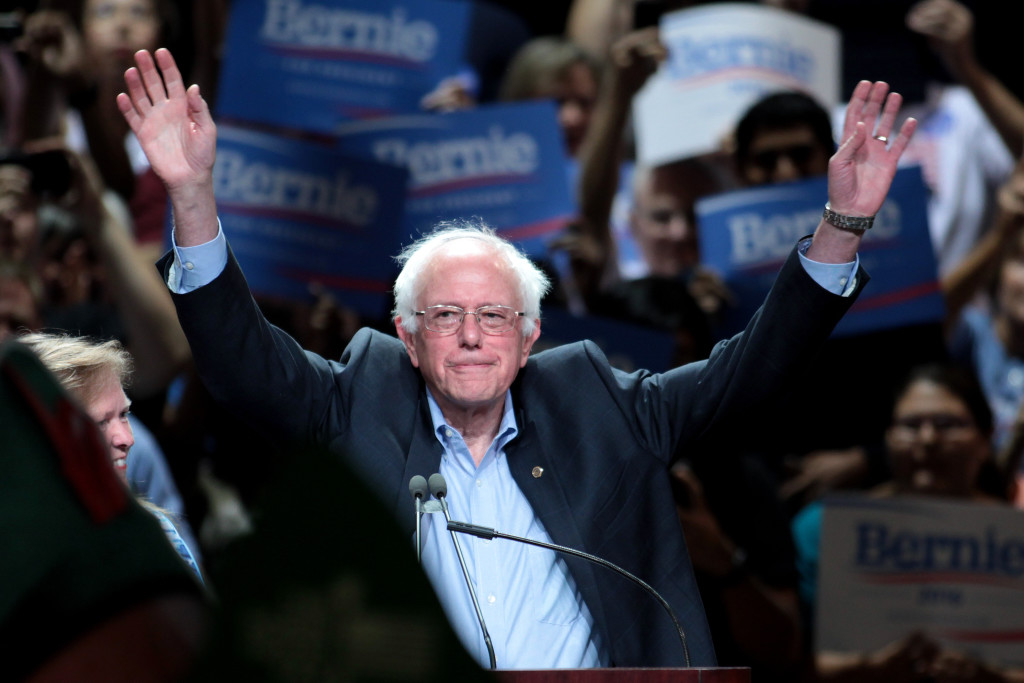Many voters, especially younger voters, are “feeling the Bern.”
But what exactly are they feeling? Generally, these individuals believe that some people (financially successful individuals) owe other people (low-income individuals)—and that some people, like those of the working class or youth demographic, are entitled to receive benefits at the expense of others.
Is This an Economic Issue? Or Does It Go Deeper?
Words and promises like “free” or “I will give you” are music to the ears of people who are feeling rather than thinking. A few basic economics lessons could really benefit these voters:
- Nothing is free
- Voluntary exchange benefits both parties
- When someone chooses to do something it is because the benefit outweighs the cost
Beyond the economics lesson, Sanders supporters need to consider the moral aspects of “feeling the Bern.”
No, You’re Not Getting Exploited…
For example, when someone says, “I think movies are a rip-off!” and then proceeds to buy a movie ticket, he obviously does not actually think it is a “rip off” because he voluntarily spends his money, proving that the perceived benefit to himself outweighs the cost.
Alternatively, when someone says, “I am being exploited by my employer,” he or she obviously is not feeling exploited enough to leave the job, and continues to stay for the benefit of his or her income.
It goes without saying that I would love to go to the movies and not have to pay money, and I would love to receive a higher salary. But my voluntary actions of buying goods and services and selling my labor to my employer prove something: nobody voluntarily trades his or her money or time unless he or she expects to benefit.
Of course, there are examples of real “rip offs,” such as businesses that are able to charge higher prices due to their government-granted monopoly positions, or businesses that commit fraud. However, government coercion, fraud, and misrepresentation aside, customers only buy goods and services because they’re worth it.
Unfortunately, Sanders’ philosophy is that the businesses are in a position of power where they can force individual customers to buy goods and services in a zero-sum game (meaning the business wins and the customer loses—there’s a fixed amount of pie on the table and everyone has to fight to get as much for themselves as possible). However, logic dictates that voluntary exchange is a positive-sum game—both the business and the customer win.
The Only Thing You’re Entitled to Is Respect for Your Property Rights
“Feeling the Bern” also reflects a philosophy that implies that some people are entitled to the property of others. That seems a little arrogant to me. Apparently, if I am an apartment building owner and want to raise the rent, I am evil. If I am a business owner and I raise my prices, I am “exploiting” my customers.
These positions assume that an apartment owner owes people a place to live and that business owners owe people goods and services. In a truly just economic system, nobody owes anybody anything other than respect for the property rights of others.
What is interesting is that Sanders supporters often have no moral problem with a renter wanting to pay as little rent as possible, or a customer buying something on sale, or an employee receiving his or her current hourly wage even though he or she would work for a lower wage. The individual “little guy” is not being greedy when wanting to make more money, but corporations and business owners are evil and greedy when they charge higher prices or make higher profits.
That’s a one-sided argument—a double standard.
Sanders Does Get One Thing Right…Sort of
Sanders is correct that it is wrong for multibillion dollar corporations to receive subsidies. Unfortunately, he incorrectly blames this on capitalism.
In true capitalism (free enterprise), businesses would not receive special handouts or government protection. In true capitalism, a business is not entitled to success, and if it needs government handouts, this proves that it is a failure and should be allowed to die without forced taxpayer life support.
What Sanders is actually criticizing is cronyism (sometimes called “crony capitalism”), not real capitalism.
Sanders’ philosophy is inconsistent, though, since he believes it is a moral policy for the government to get involved to save the small “mom and pop” shops. No business, regardless of size, should get special privileges from the taxpayers.
Something We Can’t Ignore
Of course, we need to use sound, logical economic analysis in evaluating the positions of candidates. However, we must not ignore the moral implications of their positions.
It is time for Sanders supporters to start “thinking the econ” and stop “feeling the Bern.”
More importantly, people need to understand that “feeling the Bern” is actually a philosophy that supports an immoral, coercive, economic system that rejects freedom of exchange and true choice.
If Sanders supporters truly valued choice and freedom, they would support the only system that upholds these values—capitalism.



